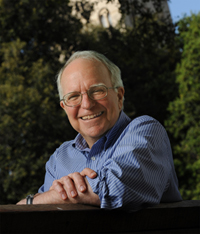The Brookings Institution is committed to quality, independence, and impact.
We are supported by a diverse array of funders. In line with our values and policies, each Brookings publication represents the sole views of its author(s).

Research
BPEA

1995, No. 1
THE LOSS of a job can be a significant economic event. When an employer discharges a worker permanently, the worker may take many months to find a new job. The new job often pays lower wages, and the worker faces a much higher likelihood of discharge from a new job than from an established job. It may take several years for a worker to be back on the career path interrupted by the original discharge. However, many job losses are routine. They occur, for example, when a construction project is completed and the workers disperse to look for new projects. This paper takes a broad look at the economics of job loss and the many sources of data that expose different aspects of the flows of workers out of jobs and back into them. One major goal is to describe the incidence and consequences of job loss. It also builds the analytical case that brief, sharp episodes of primary job loss are followed by long periods of slowly rebuilding employment relationships over the business cycle. Although the case is far from complete, I believe that these events in the labor market play an important part in the persistence of high unemployment and low output long after the initial shock that triggers a recession.